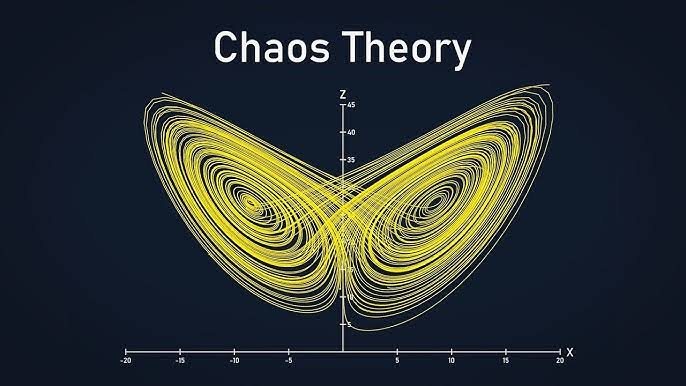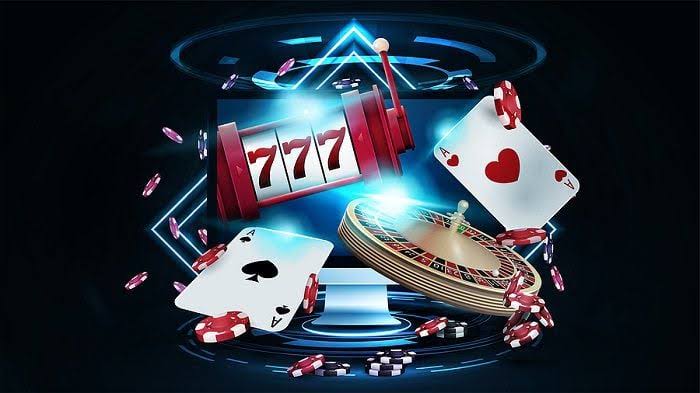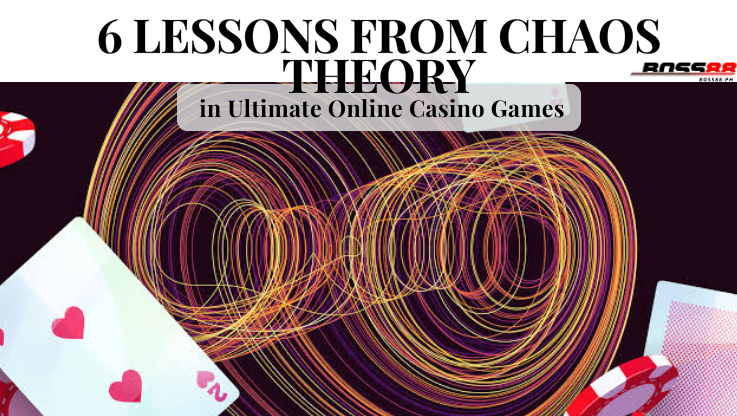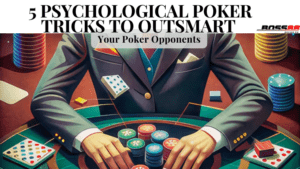Chaos theory, a fascinating branch of mathematics, highlights how small changes in initial conditions can lead to vastly different outcomes. While it might seem like a far cry from online casino games, its principles align closely with how randomness, probability, and player decisions shape gaming experiences. Let’s dive into six valuable lessons from chaos theory that can enhance your understanding of online casino games and help you navigate them more effectively.

The Butterfly Effect: Small Decisions Have Big Impacts
One of the most well-known aspects of chaos theory is the Butterfly Effect—the idea that a small change can lead to significant consequences. In online casino games, this principle comes to life in decision-making.
For instance, in poker, a seemingly minor decision like folding on a borderline hand could save you from a major loss or lead you to miss a game-changing win. Similarly, in slot games, adjusting your wager by just a few cents can affect how long you play and the outcomes of bonus rounds.
How to Apply This Lesson:
- Be mindful of every decision, no matter how small.
- Understand that even minor changes in strategy can have long-term consequences.
- Track your gameplay to see how small adjustments impact your outcomes.
Sensitivity to Initial Conditions: Bankroll Management Matters
Chaos theory emphasizes that starting conditions are crucial. In the context of online casinos, this lesson underscores the importance of bankroll management. The amount of money you allocate for gaming sets the stage for your entire experience.
Players who enter a session with a well-structured bankroll plan are more likely to enjoy longer, more sustainable gameplay. Conversely, diving in without limits can quickly spiral into chaos, leading to financial losses.
Pro Tips for Better Bankroll Management:
- Set a strict budget before starting.
- Stick to games that fit within your financial range.
- Avoid chasing losses, as this disrupts your initial plan.

Unpredictability is the Rule, Not the Exception
Chaos theory teaches that systems can be deterministic yet unpredictable. Online casino games, governed by Random Number Generators (RNGs), operate under a similar principle. Each spin, deal, or roll is independent and influenced by a mathematical algorithm designed to ensure fairness and unpredictability.
For example, just because you’ve had a losing streak on a slot machine doesn’t mean a win is “due.” The outcome remains random regardless of past results.
How to Embrace the Chaos:
- Accept the inherent randomness of games and avoid superstitions.
- Focus on the entertainment aspect rather than trying to predict outcomes.
- Explore games with varying levels of volatility to match your preferences.
Fractals and Patterns: Spotting Trends Without Chasing Them
Fractals, intricate patterns that repeat at different scales, are a cornerstone of chaos theory. In online casino games, recognizing patterns can be advantageous, particularly in games like blackjack or baccarat, where strategy and observation play a role.
However, it’s crucial to distinguish between legitimate trends and random coincidences. Misinterpreting randomness as a pattern can lead to poor decisions, such as placing larger bets based on perceived “hot streaks.”
Tips for Spotting and Using Patterns:
- Pay attention to game histories in skill-based games.
- Avoid overanalyzing RNG-based games like slots, where outcomes are purely random.
- Use patterns as a guide but never as a guarantee.

Feedback Loops: Learning from Wins and Losses
In chaos theory, feedback loops demonstrate how outputs of a system can influence future behavior. Similarly, your gaming outcomes—wins and losses—should shape your future decisions.
For instance, after a successful blackjack session, review what strategies worked well. On the flip side, analyze your losses to identify areas for improvement, such as avoiding impulsive bets or sticking to your budget.
How to Create Positive Feedback Loops:
- Keep a gaming journal to track strategies and outcomes.
- Celebrate small wins to maintain a positive mindset.
- Learn from losses to refine your approach.
Embracing the Unknown: Balance Skill and Chance
Chaos theory celebrates the beauty of unpredictability, encouraging us to embrace the unknown. Online casino games blend skill and chance, creating a dynamic environment where adaptability is key.
For example, poker requires a mix of strategic thinking and luck. Even with a solid strategy, the unpredictability of opponents’ hands and decisions keeps the game exciting. Similarly, games like roulette remind players that chance can play the dominant role, no matter the strategy.
Strategies to Balance Skill and Chance:
- Focus on games that match your skill level and risk tolerance.
- Stay adaptable; adjust your strategy as needed.
- Remember that outcomes are never guaranteed, so play responsibly.
Final Thoughts: Navigating the Chaos of Online Casino Games
The principles of chaos theory highlight the intricate interplay of randomness, decisions, and outcomes. By applying these lessons to online casino games, players can gain a deeper appreciation for the unpredictability and excitement these games offer.
Embrace the chaos, but do so responsibly. Balance entertainment with strategy, and always keep your limits in mind. Whether you’re spinning reels, bluffing opponents, or rolling dice, the lessons from chaos theory can guide you toward a more informed and enjoyable gaming experience.







































